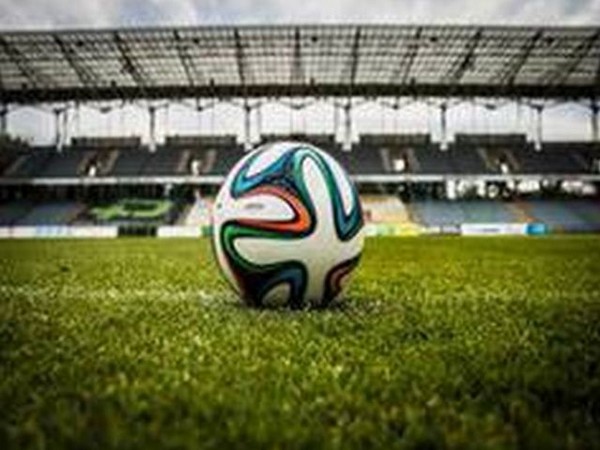‘Illegal betting is the number one factor fuelling corruption in sports’, UN conference hears
Representatives of crime fighting organizations present at the event underscored the scale of the corruption problem.

The global problem of illegal sports betting, the fraudulent manipulation of competitions, and the involvement of organized crime in the sporting world has been tackled at a UN conference in Atlanta, United States.
The discussions at the international anti-corruption conference, convened in Atlanta by the UN Office on Drugs and Crime (UNODC), held between 11 and 15 December, built on the ground-breaking Global Report on Corruption in Sport, produced by the UNODC in 2021, which pointed to a dramatic increase in illegal betting, fuelled by the billions of dollars flowing through professional sports, as well as globalization, and technological advances.
UNODC, which is at the forefront of international efforts to support governments and sports organizations in preventing and punishing offences in sport through its Programme to Protect Sport from Corruption and Economic Crime, estimates that up to $1.7 trillion is wagered on illicit betting markets controlled by organized crime.
Speaking at a session on sport and corruption at the conference, James Porteous, Research Head of the Asian Racing Federation Council on Anti-Illegal Betting and Related Financial Crime, said that illegal betting is now the “number one factor fuelling corruption in sports,” and pointed out that many of the regulations were drafted in the 19th century and are not fit for the internet world.
Fixed odds: fighting match fixing
Representatives of crime fighting organizations present at the event underscored the scale of the corruption problem.
Humaid Al Ameemi, Coordinator of the Anti-Corruption Unit of INTERPOL (the International Criminal Police Organization, an intergovernmental body), explained that manipulation of sporting competitions, colloquially known as match fixing, is a highly organized crime involving money laundering and other illegal activities, and called for improved data sharing.
Mr Al Ameemi described the manipulation of competitions as a “gateway to crime”: Joseph Gillespie, Chief of the Transnational Organized Crime Threats Unit at the FBI (the USA’s Federal Bureau of Investigation), expanded on the theme, emphasizing that the Bureau has a keen interest in addressing corruption in sport, as it provides organized crime with opportunities to make profit through extortion, illegal betting, and other unlawful activities.
INTERPOL, UNODC and the International Olympic Committee (IOC) have collaborated on a guide for policymakers, to help them to address, and effectively investigate competition manipulation.
Anita DeFrantz, a member of the IOC and a medal winner at the 1976 Games in Montreal, underlined the importance of strong collaboration between sporting organizations and law enforcement agencies in ensuring integrity and credibility, and highlighted the role of the International Partnership Against Corruption in Sport (IPACS), which includes international sports organizations, governments, and inter-governmental bodies including UNODC.
The ugly side of ‘the beautiful game’
As the world’s most popular sport, awash with huge sums of money, football is particularly prone to corruption. Even the sport’s world governing body, FIFA, has faced criminal accusations and scandals, most notably in 2015, when several FIFA officials were arrested at a prominent Swiss hotel.
Following the investigation by the US Department of Justice into corruption in FIFA in 2016, the international community's attention on corruption and crime in sport has increased significantly, along with calls to act.
The current FIFA President, Gianni Infantino, delivered a video message to the conference, in which he said that protecting football from corruption and ensuring sporting justice is the most important topic for the organization.
“Football is a multi-billion dollar global industry which makes it a potential target for corruption and other kinds of criminal activity and that is something that we should avoid and combat to ensure that the playing field is always level,” said Mr. Infantino.
A renewed Memorandum of Understanding between FIFA and UNODC has, he said, been beneficial in developing over 60 projects linked to anti-corruption, notably the Global Integrity Programme addressing match-fixing, "a platform that facilitates important information exchange between all those combating corruption in all walks of life."
In the wake of the Programme, which involved training over 400 Football Integrity Officers and government officials and tackling competition manipulation, UNODC took part in the Qatar FIFA World Cup Integrity Task Force, to monitor 64 matches for match manipulation (no threats were flagged to the Task Force).
Visit UN News for more.
- READ MORE ON:
- Global Report on Corruption in Sport
- the UN Office on Drugs and Crime UNODC
- Programme
- LibrariesGraphics Library15-12-2023-UNODC- football-corruption.jpgimage770x420cropped.jpg
- UNODC
- United States
- Atlanta
- Federal Bureau of Investigation
- the Bureau
- Anita DeFrantz
- FIFA
- Memorandum
- LibrariesGraphics Library15-12-2023-UNODC-
- Gianni Infantino
- James Porteous
- Research Head
- INTERPOL
- Montreal
- Qatar
- Infantino










